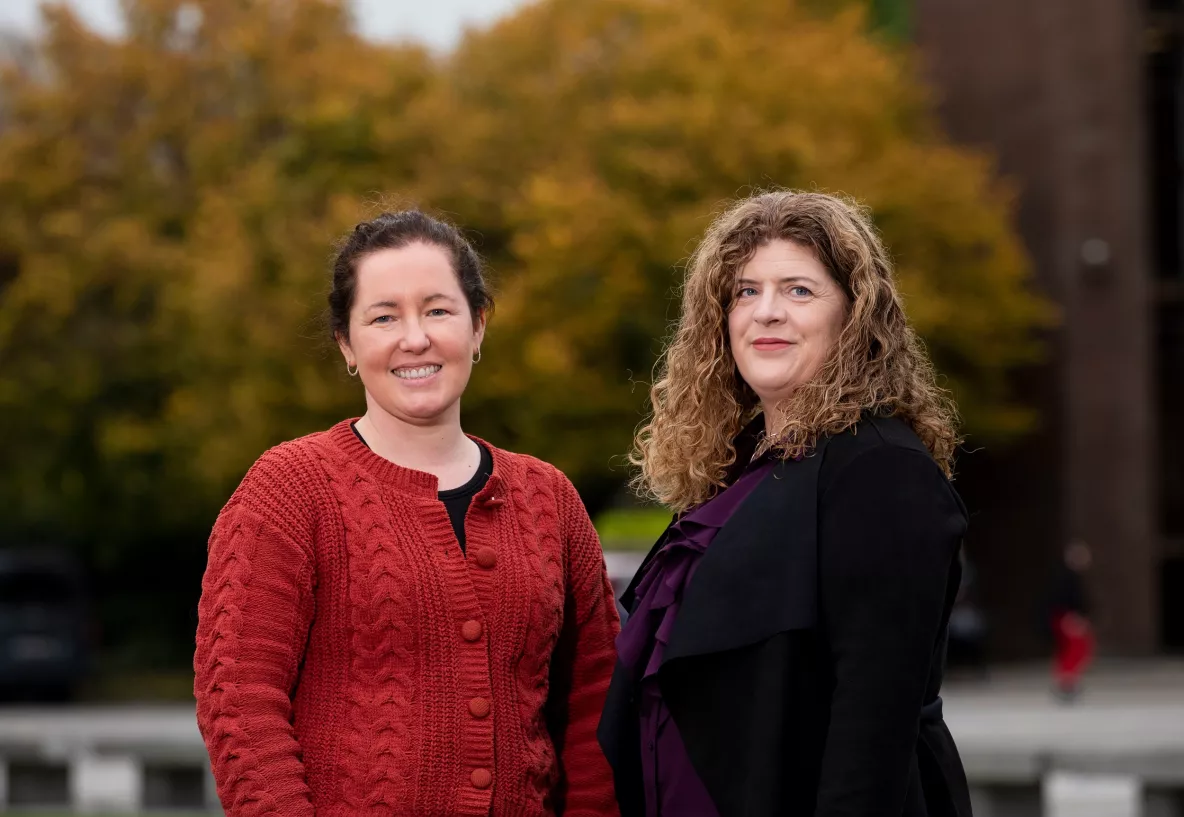
Groundbreaking work on cutting-edge, open-source bioinformatics software taking place at University of Limerick is to receive support from the Chan Zuckerberg Initiative, it has been announced.
Two scientists at UL have received substantial funding of more than €730,000 ($800,000) from the philanthropic organisation founded by Facebook’s Mark Zuckerberg and Dr Priscilla Chan.
Dr Maria Doyle and Professor Aedín Culhane of UL’s School of Medicine and the Limerick Digital Cancer Research Centre received the funding to support their work in Bioconductor, an open-source software project that provides tools for analysing genomic data, critical for understanding diseases at a molecular level.
The software allows for the analysis of large biological data at the genomics and molecular levels and helps scientists solve complex biological problems and find better treatments for disease.
Bioconductor's mission is to advance open-source software for biomedical research and genomic data analysis and ensure equitable access for researchers worldwide.
Professor Culhane, who is Professor of Cancer Genomics at UL, said the funding would build bioinformatics expertise on every continent including Europe and Africa.
“Virtually all biomedical research now relies on computational tools and infrastructure. By providing specialised training and empowering researchers, we can address local health challenges, build sustainable development, and enhance capacity for globally inclusive and accessible biomedical discovery,” explained Professor Culhane.
“Our goal is to share knowledge and skills to empower researchers worldwide to tackle big health challenges.”
Professor Culhane was awarded funding to run a global Train the Trainer programme, which will be led by Dr Doyle, the Global Community Manager of the Bioconductor project.
Dr Doyle was awarded funding to support emerging leaders in Bioconductor, improve online resources, and strengthen collaborative efforts within the open-source community.
“We are grateful for the funding of the Bioconductor Champions project, which is all about bringing smart people together, sharing knowledge, and making it easier to develop software that can advance biomedical and health research,” said Dr Doyle.
Dario Taraborelli, Science Program Officer at the Chan Zuckerberg Initiative (CZI) said: “We are proud to continue investing in the Bioconductor community and global bioinformatics training. These projects align with our mission to promote open science and expand access to essential computational tools for researchers globally.”
Bioconductor is a global open-source software project using the R statistical programming language that has more than 1,000 developers and is downloaded by more than one million users every year.
Professor Vincent Carey at Harvard Medical School, the global Bioconductor Project Lead, explained: “Bioconductor helps meet growing requirements for reliable genomic data science in a multitude of ways. Bioconductor supports the bioinformatics workforce in industry and academia with easily installed state-of-the-art analysis tools and annotations. Bioconductor builds the workforce for the future of genome biology with high-quality documentation and training resources, and with a very active community outreach programme.
“The CZI awards to Drs Doyle and Culhane properly recognize their crucial roles in all aspects of Bioconductor and promise to increase the value and efficiency of research in genome biology in domains ranging from agriculture and public health to cutting-edge methods of human medicine.”
Both Professor Culhane and Dr Doyle are members of Lero, the UL-hosted Science Foundation Ireland Research Centre for Software, while Professor Culhane is also a member of the Health Research Institute in UL and director of the Limerick Digital Cancer Research Centre.
Professor Lionel Briand, Director of Lero, the Science Foundation Ireland Research Centre for Software based at UL, said: “Open-source software allows researchers to collaborate, share code and build on each other’s work, leading to faster progress and more reproducible research, making it essential to accelerate Ireland’s open-source software capacity.
“Lero is highly supportive of initiatives that promote Ireland’s leadership in global collaboration especially open-source development due to its considerable impact,” Professor Briand added.
The grants reflect UL’s ongoing commitment to advancing Open Science and fostering global research collaborations, according to Professor Norelee Kennedy, Vice President for Research at UL.
“The projects led by Dr Doyle and Professor Culhane exemplify the University's dedication to innovation, inclusivity, and the dissemination of knowledge,” said Professor Kennedy.
Denis Shields, Professor at University College Dublin and Head of the EU ELIXIR Ireland Node, said securing the funding was “an enormous achievement for UL and Irish bioinformatics”.
“It demonstrates that Irish bioinformatics can lead global initiatives. Bioinformatics is a rapidly growing scientific field that combines biology, statistics and computer science, adding that “It is transforming our ability to investigate disease and discover new medicines, and to better understand biodiversity.
“These projects will significantly enhance bioinformatics infrastructure and training, ensuring that researchers across Ireland and globally have access to the best tools and resources,” Professor Shields added.
“The funds will have a significant impact across Africa, providing essential resources and training to our researchers. This support will enable them to make meaningful contributions to address global One Health challenges,” added Dr Trushar Shah, Country Representative for Kenya at the International Institute of Tropical Agriculture (IITA), Dr Umar Ahmad, Senior Technical Officer at Africa CDC in Nigeria, and Dr Zedias Chikwambi, Head of the Genomics and Bioinformatics Unit at the African Institute of Biomedical Sciences and Technology in Zimbabwe.